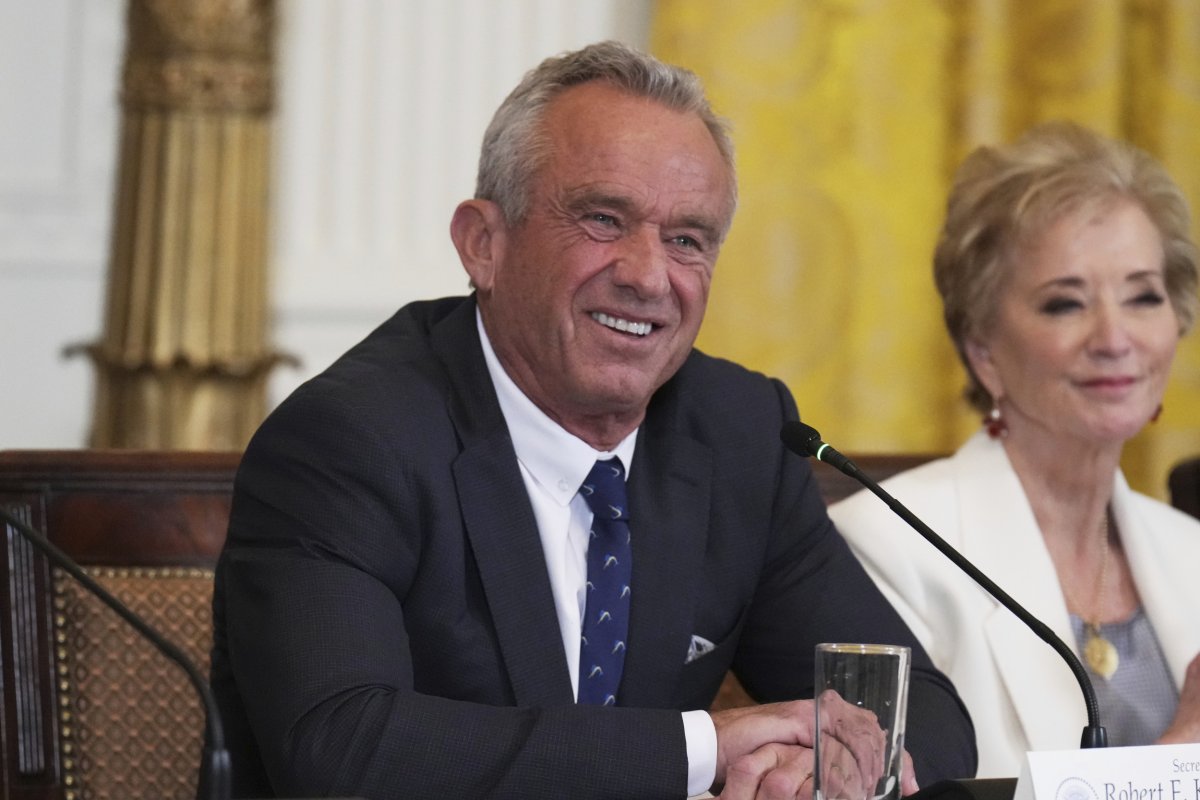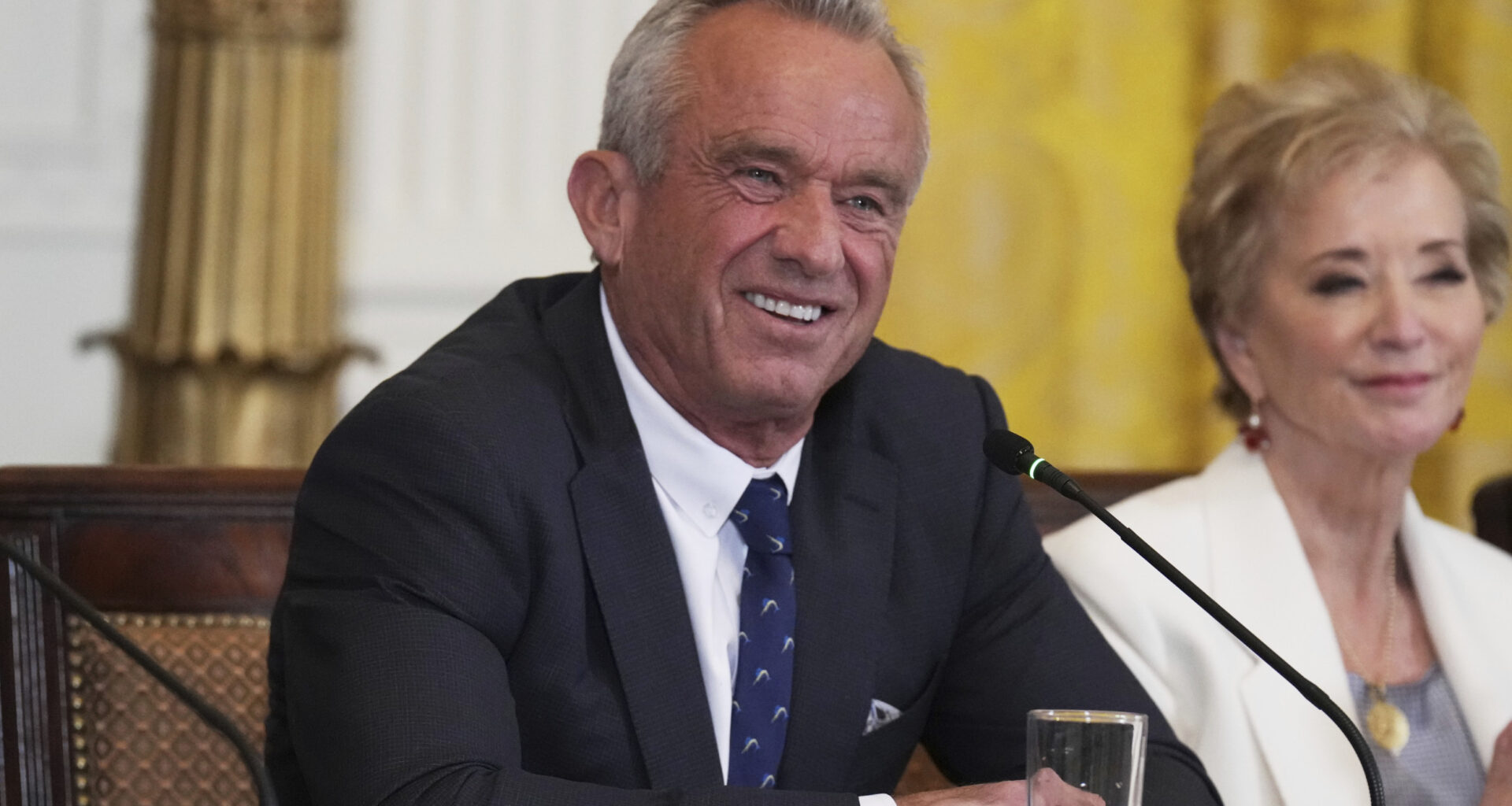Two health experts have criticized Health and Human Services Secretary Robert F. Kennedy Jr., with one saying “there’s a new inconsistency every day.”
Newsweek has contacted Kennedy via the U.S. Department of Health & Human Services (HSS) via email for comment.
Why It Matters
Critics say Kennedy’s agenda undermines the scientific process and risks eroding decades of public trust in vaccines, while others argue that his new approach is what Americans voted for.
It comes after Kennedy Jr. announced that the U.S. Centers for Disease Control and Prevention (CDC) is no longer encouraging COVID-19 vaccines for pregnant women and healthy children, marking a shift in federal public health guidance.
Last week, Kennedy’s Make America Healthy Again (MAHA) Commission report on the causes of childhood illnesses contained multiple errors and references that were not real that have since been corrected by the White House.

Health and Human Services Secretary Robert F. Kennedy Jr. and Education Secretary Linda McMahon attend a Make America Healthy Again event in the East Room of the White House on May 22, 2025, in Washington….
Health and Human Services Secretary Robert F. Kennedy Jr. and Education Secretary Linda McMahon attend a Make America Healthy Again event in the East Room of the White House on May 22, 2025, in Washington.
More
AP
What To Know
Michael Osterholm, director of the University of Minnesota’s Center for Infectious Disease Research and Policy, said: “There’s a new inconsistency every day.”
“For many of us, what we’re concerned about is that this is all merging into one anti-vaccine message, and it also is merging into [the administration thinking]: ‘We can do whatever we want from a regulatory oversight standpoint,'” he told Axios.
Chris Meekins, a managing director at Raymond James and health official in the first Trump administration, said the false citations in the MAHA reports said Kennedy’s agenda is being carried out “in a way that is unserious.”
“At the end of the day, they’re going to do what they believe and what they want to do,” Meekins added. “How they go about executing the agenda, I think, is very much in play.”
Similarly, Georges C. Benjamin, executive director of the American Public Health Association, previously said: “This is not an evidence-based report, and for all practical purposes, it should be junked at this point. It cannot be used for any policymaking. It cannot even be used for any serious discussion, because you can’t believe what’s in it.”
When asked about the fake citations in a news briefing, White House Press Secretary Karoline Leavitt said the White House has “complete confidence in Secretary Kennedy and his team at HHS.”
HHS spokesperson Andrew Nixon told Axios that Kennedy’s “approach is deliberate—not traditional for Washington but urgently needed for a nation that has lost trust in public health institutions.
“By leveraging direct communication tools like social media, Secretary Kennedy is modernizing how HHS engages with the public, reaching Americans where they are, and with the radical transparency they deserve.”
What People Are Saying
White House Press Secretary Karoline Leavitt: “I understand there were some formatting issues with the MAHA Report that are being addressed, and the report will be updated, but it does not negate the substance of the report, which, as you know, is one of the most transformative health reports that has ever been released by the federal government, and is backed on good science that has never been recognized by the federal government.”
HHS Secretary Robert Kennedy Jr. previously said about the new CDC guidance on COVID vaccines: “I couldn’t be more pleased to announce that as of today the COVID vaccine for healthy children and healthy pregnant women has been removed from the CDC recommended immunization schedule.”
What Happens Next
Critics say Kennedy’s approach could undermine scientific research, risk public health and sow confusion about vaccine safety. However, supporters argue that Kennedy is bringing needed scrutiny to institutions they see as opaque and too closely tied to pharmaceutical interests.
The debate reflects a broader question about how public health policy is shaped, with Kennedy’s proposals forcing a national conversation on the balance between scientific consensus, government transparency and individual freedom.
